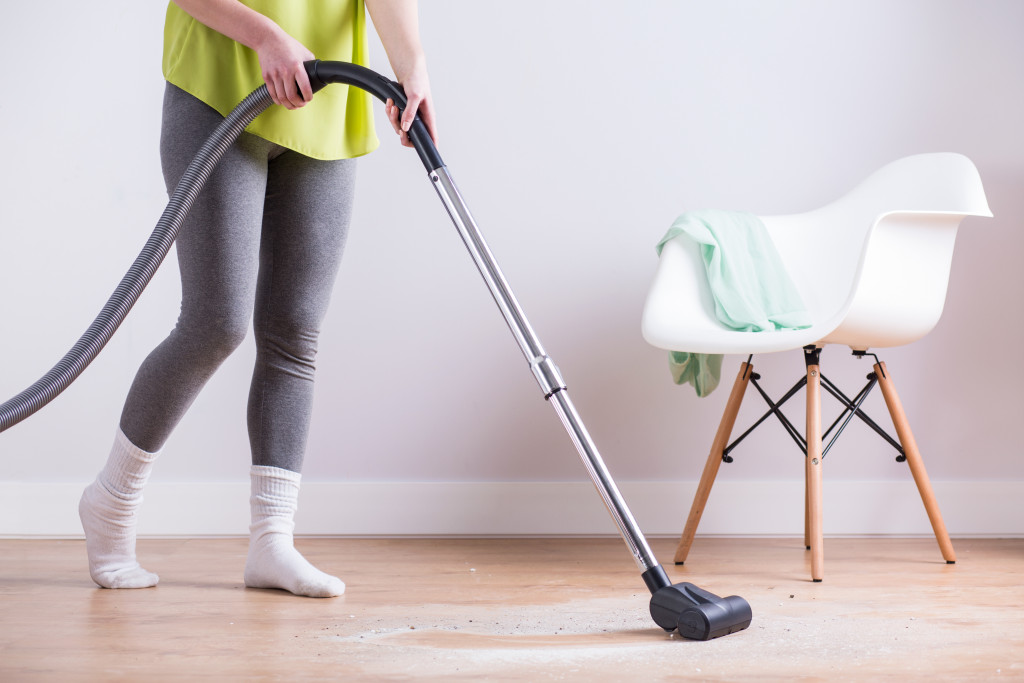Many respiratory health problems can be avoided with some simple home prevention tips. Here are a few things you can do to keep your family safe and healthy:
Inspect Your Home for Mold and Mildew
Mold and mildew can cause various respiratory problems, so it’s important to keep your home as free of them as possible. Check all damp areas of your home, such as the basement, bathroom, kitchen, and laundry room. If you see any mold or mildew, clean it up immediately with a bleach solution.
Your pipes and vents can also harbor mold and mildew, so it’s important to check them regularly. A professional plumber can clean your pipes and vents to remove any mold or mildew that may be present. They may also be able to recommend ways to prevent mold and mildew from growing in your pipes and vents in the future.
Vacuum Regularly
Vacuuming not only helps remove dirt, dust, and other allergens from your floors, but it also helps improve air quality. Be sure to vacuum all carpets and upholstered furniture at least once weekly. If vacuuming is too much work for you, try changing your floor to hardwood or tile, which are easier to keep clean.
Aside from the floors, you can also vacuum the furniture, curtains, and other fabric in your home. This will help remove any dust or allergens clinging to them. Use a specialized vacuum attachment to remove all the dust and allergens.
Wash Your Bedding Regularly
Your bedding can harbor dust, dirt, and allergens, so it’s important to wash it regularly. Make sure to wash all sheets, pillowcases, blankets, and comforters in hot water. This will help remove any dust mites or other allergens that may be present.
Frequently changing bedding will help remove any allergens present and prevent them from building up over time. Here’s how often you should wash your bedding:
- Pillow: Every two weeks
- Sheets: Every one to two weeks
- Blankets: Every two to three weeks
- Comforters: Every three to four months
Don’t Smoke
Smoking is one of the worst things you can do for your respiratory health. If you smoke, quit as soon as possible. If you don’t smoke, don’t start. Secondhand smoke is also dangerous, so avoid being around people smoking. If you can’t stop smoking, avoid smoking indoors, where the smoke can linger and cause respiratory problems for you and your family.
Install an HVAC System
An HVAC system can help improve the air quality in your home by circulating and filtering the air. If you have allergies, an HVAC system can also help to control them by keeping the air clean and free of allergens.
Proper Ventilation Is Key
A proper HVAC System will provide fresh air to your home while circulating and filtering the air. Make sure your HVAC System is properly ventilated to avoid any respiratory problems. You can purify the air by adding an air purifier.
Consider a Humidifier
Dry air can also irritate your respiratory system. A humidifier can help add moisture to the air and reduce irritation. Just clean the humidifier regularly to prevent mold and mildew growth.
Change Your Air Filter Regularly
Your HVAC system’s air filter traps dust, dirt, and allergens from the air. Over time, the air filter can become clogged, which can cause your HVAC system to work less efficiently. To keep your HVAC system working properly, change the air filter regularly. Most air filters should be changed every three months.
Change Your Furnace Filter
A dirty furnace filter can recirculate allergens and pollutants through your home. To avoid this, change your furnace filter at least once every three months. A furnace helps to circulate the air in your home, so a dirty filter can cause your furnace to work less efficiently.
Schedule Your General Cleaning
General cleaning of your home can also help to remove any dirt or allergens that may be present. Involve the whole family in cleaning to make it easier and more fun. Schedule your cleaning so that it can stay in your life. A weekly or bi-weekly cleaning schedule is usually sufficient.
In addition to your regular cleaning, you should also deep clean your home at least once a month. This involves cleaning areas often overlooked, such as baseboards, light fixtures, and ceiling fans. Deep cleaning will help to remove any dust, dirt, or allergens that may be present in these areas. If you don’t have the time and energy to deep clean your home and the dirt and allergens are too much to handle, hire a professional cleaning service.
Final Thoughts
Following these simple home prevention tips can avoid many respiratory health problems. If you have allergies, asthma, or any other respiratory problem, these tips can help to control your symptoms and improve your quality of life. Implement these tips into your routine to ensure your and your family’s health.

